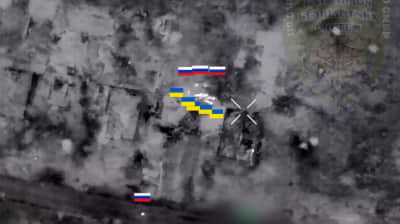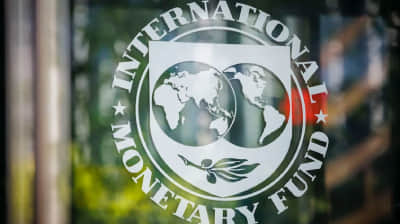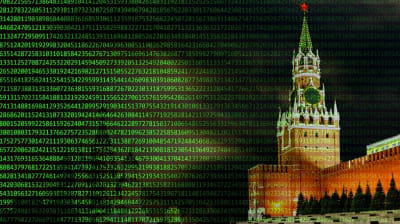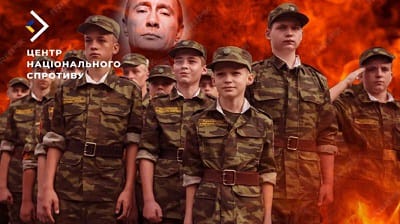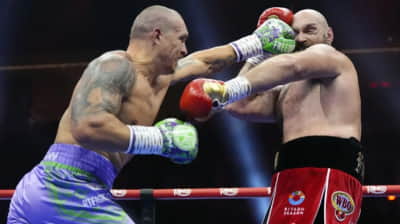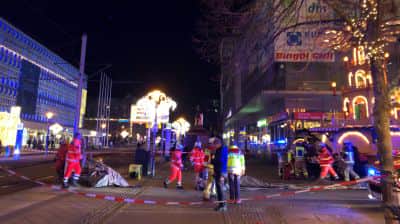2023 may be turning point in impact of sanctions on Russia
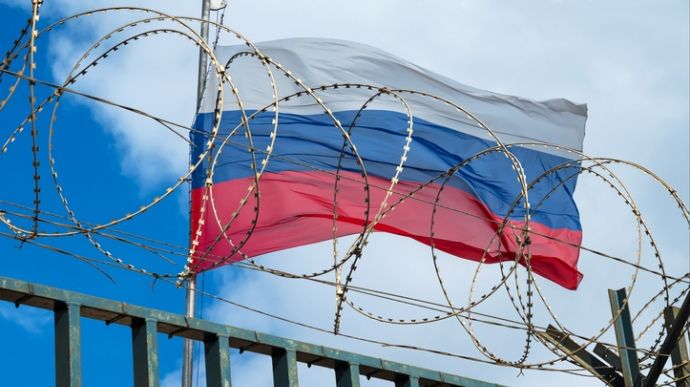
A study conducted by the International Working Group on Russian Sanctions says that while sanctions are working, they could be even tougher, and 2023 could be a turning point in their economic impact on the aggressor.
Source: President Volodymyr Zelenskyy's website
Details: The International Working Group on Russian Sanctions led by Andrii Yermak, the head of the Office of the President, and [former] ambassador Michael McFaul, the director of the Freeman Spogli Institute for International Studies (FSI), together with experts from the Kyiv School of Economics, has published a study of the impact of sanctions on the Russian economy over the last year.
"The key conclusion drawn by the experts is that the sanctions are working, but there are opportunities to toughen them," the president’s press service reports.
The researchers agree that the impact of the sanctions burden on the Russian economy, in particular on its trade and the public sector, continues to increase. This is first and foremost due to the introduction of export restrictions on Russian energy, particularly oil and natural gas. Experts believe that 2023 could be a turning point in the economic impact on the aggressor country.
"The pressure of sanctions on Russia will definitely affect its future ability to wage war, which is confirmed by the data of the joint study," said Yermak. "Even the Russian Federation’s official sources acknowledge the decline of key macroeconomic indicators in 2022: a fall in GDP, an increase in inflation and unemployment, a reduction in investment, etc. This proves the relevance of the strategy chosen by Ukraine and its allies to influence the aggressor. At the same time, there are still opportunities to further increase the pressure."
According to the study, the effect of the sanctions has had significant momentum and is now having a substantial impact on the Russian economy. The surplus of the current balance of payments is shrinking significantly (-60% for the period from Q2 to Q4, and the data for December-January indicate a strengthening of this trend), and in 2023 it will amount to $63 billion (compared to $227 billion in 2022) with the prospect of further decline. There is also a depreciation in the rouble and an increase in inflation: the rouble has lost 20% of its value since November 2022, which is forcing consumer prices up.
As a result, Russians are becoming poorer and losing access to quality goods and services. The shortage of liquid resources is also having an impact: every month, the war takes $8-9 billion away from the Russian budget, which has been covered by the National Wealth Fund (NWF). If funds are used up at this rate, the Kremlin will have lost the entire liquid part of the NWF by the end of 2023.
Receipts from oil and gas trade – a key driver of the Russian economy, including the military budget – will plunge by nearly 50% this year. And in the long term, the situation for Russia's oil and gas industry will look even more dismal. The irreversible loss of its most stable and solvent markets, the technology gap, the ripple effect that will affect the supply chain (tanker transportation, port services, pipeline transport) - all this will only hasten the collapse of the most substantial contributor to the Russian budget.
"By putting pressure on the oil and gas sector, we are hitting the aggressor at its very heart, bleeding off its potential. The impact is clearly reflected in the statistics. In 2022, oil and gas sales were the key component of export revenues ($350 billion of the total $540 billion balance of trade), whereas now we are seeing a 46% drop in revenues from the sale of oil and gas," Yermak added.
At the same time, the sanctions regime is a long way from having exhausted its potential and it requires continual updating and improvement. According to Yermak, Russia still has sufficient resources to continue the war, so the speed of the cessation of hostilities depends on the strength of the sanctions imposed.
Journalists fight on their own frontline. Support Ukrainska Pravda or become our patron!
